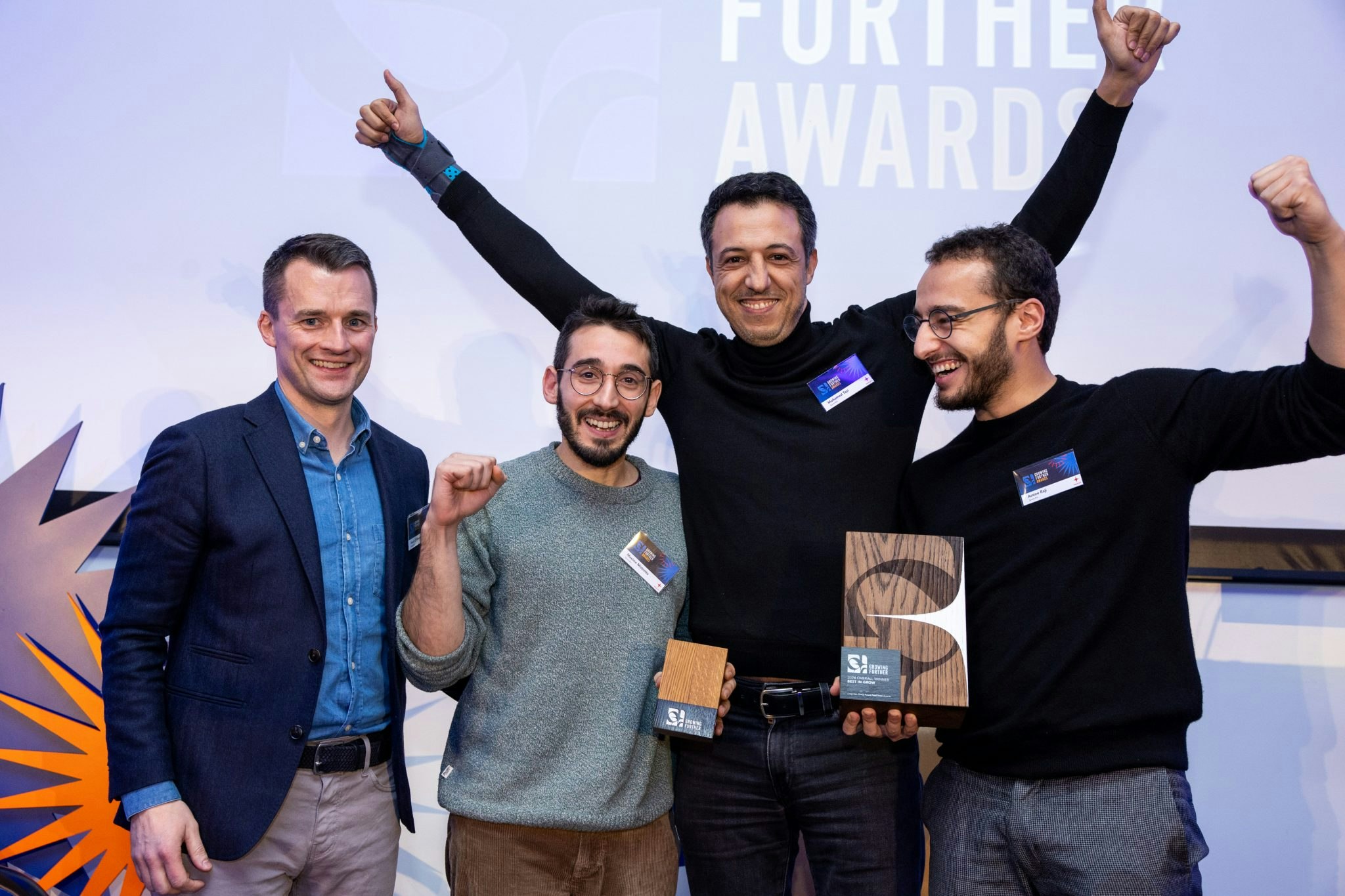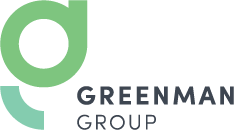The global food retail industry is both a lucrative and complicated market. Combining real estate, supply chain, last mile delivery, packaging and the products themselves, the opportunities to drive value through innovative technologies are myriad.
To identify and support Europe’s emerging companies in the food and retail industry, the Greenman Group, which is involved in the grocery retail real estate industry across Europe, launched the Growing Further Awards in 2023. Its inaugural event offering a cash prize fund of €100k for the winners, was held earlier this January, with Spore.Bio, a French startup using machine learning to identify pathogens in food production, announced as overall winner.

Johnnie Wilkinson, the CEO of the Greenman Group, explains that the awards help his businesses within the Group better understand how its tenants’ activities might change over the course of their contracts. Typically, commercial grocery tenancies can last upwards of 15-20 years, meaning these businesses will likely see profound changes to the technology required to operate.
“We realised from talking to our tenants that the role of a landlord will become less passive and more operational,” says Wilkinson.
“For us, one of the huge benefits Growing Further brings to the Group is being able to better understand what is happening in the industry and how new changes in technology will impact our buildings, our tenants activity and the whole supply chain.”
Reducing contamination in food production
Using spectral imaging and a machine learning model, Spore.Bio — which won the waste reduction category as well as the overall title — has built proprietary technology that can identify pathogens on food production lines in real time. Previously, results may take upwards of a week to be returned, as samples would need to be sent to a testing facility.
In the food and drinks industry, microbiology testing is worth $7bn.
“The technologies that exist today, to track possible contamination, all have the same issues,” says Amine Raji, Spore.Bio’s CEO and founder. “They are all extremely long, and they are all quite restrictive, as they require the enrichment of bacteria to identify them,” he added, referring to the process that’s used to, for example, grow bacterial samples in Petri dishes.
“We have developed the first technology that can identify these pathogens on site. With a completely different approach, we can detect and quantify the bacteria with the same accuracy, within seconds.”
While tracking how much food is wasted during the manufacturing process is difficult — Raji says 21% of all food waste happens at this point, though some estimates are much higher — the fact remains that mitigating spoiled produce offers a lucrative market.
“If you find a contamination too late, that’s a whole week’s worth of production going to the bins,” says Raji. “In the food and drinks industry, microbiology testing is worth $7bn. With globalisation, and the standardisation of practices in emerging countries, there are other emerging markets which are interesting to us.”
In December 2023, Spore.Bio raised a pre-seed round worth $8m. Raji says this capital, as well as winning The Growing Further Award with a prize fund of €62,000, will help in expanding their team with both technical and operational staff as they begin testing their product with leading food manufacturers.
Tomás Jones, Investment Director at Reliance Private Equity and member of the Growing Further judging panel, said Spore.Bio presented both an outstanding technical solution, and showed they had the personnel and expertise to succeed.
“Spore.bio is tackling a necessary but highly time consuming and expensive practice within food processing and manufacturing,” says Jones.
“The team brings a strong inter-disciplinary skill set and have developed a very innovative solution based on their own deep market understanding.”
Improving agricultural yields through smart soil tracking
Nerit’e, a startup based in Germany, was awarded the prize for the packaging and production category.
Their proprietary technology, Sonda, uses a physical device inserted into the ground to take a daily sample of soil. The probe releases air from a filter, which is then filled with soil, an analysis module within the unit uses ion detectors to quantify levels of nitrates, phosphates and potassium, as well as conductivity, humidity, pH and temperature. That data is instantly sent to the cloud, where farmers can track the results and ensure compliance with regulations.
“99% of all other soil sensors only measure moisture, temperature or conductivity,” says Humberto Martínez Barrón y Robles. “These technologies can only provide irrigation advice, while measuring nutrients allow us to advise farmers and agribusinesses on manure and fertiliser management as well as irrigation. It's a major step towards farm digitisation.”
Tracking this data can both benefit the overall quality of the food produced and help mitigate carbon emissions from poorly managed soil. Nerit’e is hoping to raise a €2m pre-seed investment round later this year, with plans to serve 3,000 farms across Europe by 2026 if the raise is successful.
Using artificial intelligence to improve product distribution
Optiwiser, an AI-powered supply chain software startup based in Germany, took the victory in the distribution category. Their platform allows food producers to anticipate demand from their customers, and manage their inventory more effectively, reducing waste and operational costs.
“In the food and beverage industry, accurate demand forecasting is critical to financial efficiency,” says Maximilian Köhler, Optiwiser’s cofounder and CRO. “Over-predicting demand can lead to a significant surplus of inventory, causing food to be wasted and products to be sold at lower prices, resulting in financial losses.”
Köhler says that Optiwiser’s technology has reduced their clients' food waste by 36%. That has “cascading benefits” in regards to sustainability, such as a reduction of water usage in crop production, which in turn lowers a company’s carbon footprint.
In the food and beverage industry, accurate demand forecasting is critical to financial efficiency.
After bootstrapping in its first years of operation, Optiwiser is hoping to use the recognition of the Growing Further Awards to expand its reach outside of its home market.
“We believe that being recognised with this award will significantly increase our visibility outside the DACH region, which fits perfectly with our expansion strategy and will help us attract new customers in these key markets,” says Köhler.
‘Savings-as-a-service’ in retail energy consumption
Berlin-based startup Hibyrd produces and installs intelligent electrical transformers within their clients’ physical locations and stores. This technology can optimise in-house voltage levels inside large premises, reducing electricity consumption and saving their clients around 4-10% on their energy bills. They scooped the award in the retail category, as their solution offers great potential in reducing emissions and costs in the storage of food along various points of the supply chain.
Winning awards such as Growing Further are a welcome recognition of what has been achieved to this day.
“We have the biggest impact once the food is ready for distribution,” says Nils Meinefeld, Hibyrd’s cofounder and CEO. “Warehouses in food retail operate 24/7 and have a high share of cooling operations in place. When it comes to cooling, our saving potential is very high. Of course, that is also true for the retail outlets that are very numerous and thus have a very high combined consumption.”
Hybrid describes its model as "savings-as-a-service" as it installs its technology for no cost, but takes a percentage of the savings made by its client.
“This keeps the hurdles for customers as low as possible as they do not have to invest,” says Meinefeld. “They generate financial savings from day one while also reducing the CO2 footprint.”
Not restricted to just working in the food retail sector, Meinefeld hopes the company can install hundreds of its transformers in hospitals, manufacturing facilities and utilities locations by the end of 2025.
“Winning awards such as Growing Further are a welcome recognition of what has been achieved to this day, [and] increase visibility for Hibyrd, which likely supports new business generation,” he added.
For startups in the retail food supply chain that want to scale their solution and gain more exposure in the market, Growing Further will reopen in May 2024 for applications.
David O’Meara, the founder of the initiative, is calling on early stage companies to contact Growing Further, to help the industry progress.
“In the future, we envision Growing Further and the competition as just one facet of our broader initiative, serving as a platform for education, research, mentorship and potentially even venture capital funding opportunities. The more entries, connections and partners we get, the more we can help,” he says.
Growing Further is launching their competition for 2025 on May 1. Through these awards, the Greenman Group wants to identify, recognise and reward businesses whose goal it is to positively impact any point of the grocery retail supply chain — with the chance to share a total cash prize fund of €100k and gain exposure to the Greenman Group’s extensive network. Apply by 8th October.




